#CRM for Small Business
Text
Sales Software For Small Businesses
Sales software can provide numerous benefits for small businesses, including:
Improved efficiency: Sales software can help small businesses streamline their sales processes and eliminate time-consuming manual tasks. This can free up time for sales reps to focus on selling and building relationships with customers.
Increased accuracy: Sales software can help small businesses eliminate errors in their sales processes, such as incorrect data entry or missed follow-ups. This can lead to more accurate sales forecasts and better decision-making.
Better customer insights: Sales software can provide small businesses with valuable insights into their customers' behaviors, preferences, and needs. This can help businesses tailor their sales and marketing efforts to better meet their customers' needs.
Improved collaboration: Sales software can enable small businesses to improve collaboration between sales reps and other teams, such as marketing or customer service. This can lead to better alignment and a more cohesive approach to customer engagement.
Enhanced reporting: Sales software can provide small businesses with detailed sales reports, allowing them to track their progress against goals and identify areas for improvement. This can help businesses make data-driven decisions and optimize their sales strategies.
Overall, sales software can be a valuable tool for small businesses looking to improve their sales processes, increase efficiency, and enhance customer engagement.
2 notes
·
View notes
Text
Discover how CRM systems can assist small businesses in performance monitoring. This guide highlights the top features of CRMs that help track customer interactions, improve workflow, and provide actionable insights for growth.
0 notes
Text
Best CRM Software for Small Business in 2024
Running a small business is no easy feat. Managing customer relationships, tracking leads, and organizing sales activities are vital but often time-consuming tasks. This is where a CRM (Customer Relationship Management) system can make a huge difference. By implementing the right CRM software, small businesses can streamline operations, improve customer interactions, and drive revenue growth without overextending their resources. But with so many options on the market, choosing the best CRM software can be daunting.
In this guide, we’ll take a deep dive into some of the best CRM solutions for small businesses in 2024, with a primary focus on Salestown CRM, a rising star in the CRM world. We'll also explore other options to help you find the perfect fit for your business.
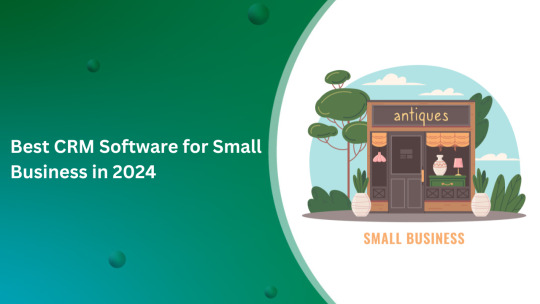
Read also: Best CRM for small businesses
What is CRM Software?
A CRM system is designed to help businesses manage their relationships with current and potential customers. It centralizes customer information, tracks interactions, automates follow-ups, and provides insights into sales and marketing efforts.
For small businesses, CRMs can be a game-changer. Instead of manually juggling spreadsheets and email threads, a CRM system brings everything into one place. This improves team collaboration, customer service, and ultimately, boosts your bottom line.
Key Features to Look for in Small Business CRM Software:
Ease of Use: Small businesses don’t always have dedicated IT staff, so the CRM should be user-friendly and intuitive.
Customization: Every small business is unique, so your CRM should be flexible enough to adapt to your specific needs.
Scalability: As your business grows, your CRM should scale with it.
Automation: Automating repetitive tasks like data entry, follow-ups, and sales tracking can save valuable time.
Integration: The CRM should integrate with other tools like email marketing software, accounting systems, and project management tools.
Read also: sales force management
Salestown CRM: Best CRM Software for Small Businesses
Overview of Salestown CRM
Salestown CRM is designed specifically for small and medium-sized businesses. It offers a comprehensive range of features at an affordable price, making it an ideal option for small businesses looking to optimize their sales processes without breaking the bank. Its focus on ease of use, affordability, and scalability make it stand out from competitors.
Read Also: WhatsApp Automation
Key Features
1. User-Friendly Interface
Salestown CRM prides itself on being intuitive and easy to navigate, which means you won’t spend countless hours learning how to use it. The clean dashboard design gives you a quick overview of your sales pipeline, customer interactions, and follow-ups.
2. Lead Management
Salestown CRM allows you to capture, track, and manage leads effectively. You can categorize leads based on where they are in the sales funnel, ensuring that your team focuses on the most promising prospects.
3. Contact Management
Keeping track of customer interactions is vital for small businesses, and Salestown CRM makes this easy. It centralizes customer data, allowing your sales team to view the entire interaction history with just a few clicks. This feature ensures no lead falls through the cracks.
4. Sales Pipeline Tracking
With Salestown CRM, you can visualize your entire sales pipeline, making it easier to identify bottlenecks and opportunities for improvement. The customizable pipeline stages allow you to tailor the system to your unique sales process.
5. Automation
Time is money, and automating repetitive tasks can save your team hours of work each week. Salestown CRM automates tasks like follow-up reminders, email marketing campaigns, and sales reporting, enabling your team to focus on what they do best—selling.
6. Integration
Salestown CRM integrates seamlessly with popular third-party apps like Gmail, Outlook, and Mailchimp, enabling you to streamline communication and marketing efforts. This ensures that you don’t have to switch between platforms to get the job done.
7. Affordability
For small businesses, budget constraints are always a concern. Salestown CRM offers flexible pricing plans that grow with your business, starting from basic packages for smaller teams to more advanced options for scaling companies. Unlike some larger CRM platforms that charge exorbitant fees, Salestown CRM provides all the essential features without breaking the bank.
Read also: CRM in service sector
Why Salestown CRM is Perfect for Small Businesses
Salestown CRM ticks all the right boxes for small businesses. It’s simple, customizable, and affordable. For companies that need an all-in-one CRM solution without complex pricing models or steep learning curves, Salestown CRM is a fantastic choice.
Other Top CRM Software for Small Businesses
While Salestown CRM is an excellent option, it’s essential to explore other choices in the market to ensure you find the right fit for your business. Below are three alternative CRM solutions for small businesses.
1. HubSpot CRM
HubSpot is one of the most popular CRMs available today, especially for small businesses. The reason behind its popularity is its free version, which offers a robust range of features, including contact management, email tracking, and sales pipeline management. HubSpot CRM integrates seamlessly with other HubSpot marketing and sales tools, making it a top choice for businesses looking for a full inbound marketing solution.
Key Features:
Free forever plan with essential CRM tools.
Easy integration with marketing and sales tools.
Automated lead scoring and task management.
Drawbacks:
While the free version is powerful, some advanced features require paid upgrades.
Limited customization for businesses with complex sales processes.
Read Also: Objective of CRM
2. Zoho CRM
Zoho CRM is another popular option for small businesses. Known for its wide array of features and affordability, Zoho CRM offers tools for sales automation, marketing, and customer support. It’s highly customizable, which is excellent for businesses looking for a tailored CRM solution. Zoho also offers a free version with limited features, which is great for startups.
Key Features:
Sales automation, email marketing, and customer service tools in one platform.
Highly customizable to fit unique business needs.
Affordable pricing plans.
Drawbacks:
The learning curve can be steep for new users.
The free version has limited functionality.
Read also: CRM For Doctor
3. Pipedrive
Pipedrive is a sales-focused CRM that makes managing leads and deals incredibly easy. It’s designed with simplicity in mind, making it perfect for small businesses that need to keep their sales process organized without unnecessary complexity. Pipedrive’s intuitive interface and visual sales pipeline make it easy to track every deal in your pipeline.
Key Features:
User-friendly, visual sales pipeline.
Automation of repetitive tasks like follow-ups.
Excellent for small teams focused primarily on sales.
Drawbacks:
Limited functionality outside of sales tracking.
Add-ons like email marketing and reporting come at extra costs.
Read also: real estate crm
Conclusion
Choosing the right CRM software can have a transformative impact on your small business, helping you streamline operations, enhance customer relationships, and drive growth. While there are numerous CRM solutions to choose from, Salestown CRM stands out as an ideal option for small businesses. Its ease of use, affordability, and robust feature set make it a reliable tool for improving sales processes and managing customer interactions.
That said, other CRM options like HubSpot, Zoho CRM, and Pipedrive also offer great features tailored to different business needs. The right CRM will depend on your company’s specific requirements, budget, and long-term goals.
By investing in a quality CRM, your small business can better manage leads, build stronger customer relationships, and ultimately achieve greater success in a competitive marketplace.
Read More:
What is Sales Automation
0 notes
Text

1 note
·
View note
Text
CRM for Small Businesses: A Comprehensive Overview
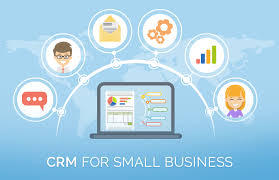
Customer Relationship Management (CRM) systems are essential tools for businesses of all sizes, but they offer particular advantages for small businesses. CRM systems help manage interactions with current and potential customers, streamline processes, and improve profitability. This comprehensive overview explores what CRM systems are, the benefits they offer to small businesses, key features to look for, and tips for choosing and implementing a CRM system.
What is CRM?
Customer Relationship Management (CRM) refers to the strategies, practices, and technologies that businesses use to manage and analyze customer interactions and data throughout the customer lifecycle. The goal is to improve customer service relationships, assist in customer retention, and drive sales growth. CRM systems compile data from various channels, including email, phone, website, and social media, providing a unified view of each customer.
Benefits of CRM for Small Businesses
Enhanced Customer Service: CRM systems centralize customer information, making it easily accessible to all team members. This enables small businesses to provide more personalized and efficient customer service, addressing customer needs and concerns promptly.
Improved Sales Management: CRM systems help manage the sales process by tracking interactions, identifying potential leads, and monitoring sales performance. This can lead to more efficient sales cycles and increased conversion rates.
Increased Productivity: Automating routine tasks such as follow-up emails, scheduling meetings, and data entry frees up time for employees to focus on more critical tasks. This can lead to increased productivity and efficiency.
Better Data Management: A CRM system consolidates customer information into a single database, reducing data silos and ensuring data accuracy. This helps small businesses make informed decisions based on reliable data.
Enhanced Marketing Efforts: CRM systems provide insights into customer behavior and preferences, allowing small businesses to create targeted marketing campaigns. This can lead to higher engagement and better ROI on marketing efforts.
Improved Customer Retention: By keeping track of customer interactions and preferences, CRM systems help small businesses anticipate customer needs and address issues proactively, leading to higher customer satisfaction and loyalty.
Key Features of a CRM System
Contact Management: Centralizes customer information, including contact details, communication history, and preferences. This feature ensures that all customer data is easily accessible and up-to-date.
Sales Management: Helps track sales opportunities, manage the sales pipeline, and monitor the performance of sales teams. Features often include lead tracking, deal stages, and sales forecasting.
Task and Activity Management: Allows businesses to assign tasks, set deadlines, and track progress. This ensures that nothing falls through the cracks and that all team members are on the same page.
Email Integration: Syncs with email platforms to log communications and schedule follow-ups automatically. This integration helps streamline communication and ensures that all customer interactions are recorded.
Reporting and Analytics: Provides insights into sales performance, customer behavior, and marketing campaign effectiveness. Customizable reports and dashboards help small businesses track key metrics and make data-driven decisions.
Marketing Automation: Automates marketing tasks such as email campaigns, social media posts, and lead nurturing. This feature helps small businesses engage with customers more effectively and efficiently.
Mobile Access: Offers mobile applications that allow team members to access CRM data and perform tasks on-the-go. This ensures that employees can stay productive even when they are not at their desks.
Customer Support Management: Includes tools for managing customer inquiries, support tickets, and service requests. This feature helps improve response times and ensures that customer issues are resolved promptly.
Choosing the Right CRM for Your Small Business
Assess Your Needs: Identify the specific needs of your business and the problems you want the CRM system to solve. Consider factors such as the size of your team, the complexity of your sales process, and your budget.
Consider Usability: Choose a CRM system that is user-friendly and easy to navigate. A system that is too complex can lead to low adoption rates among your team members.
Scalability: Ensure that the CRM system can grow with your business. Look for a solution that offers flexible pricing plans and the ability to add features as your needs evolve.
Integration Capabilities: Check whether the CRM system can integrate with your existing tools and software, such as email platforms, accounting software, and marketing automation tools. Seamless integration helps streamline workflows and improves efficiency.
Customization Options: Choose a CRM system that can be customized to fit your business processes and workflows. Customization ensures that the system aligns with your specific needs and maximizes its effectiveness.
Vendor Support and Training: Ensure that the CRM provider offers robust customer support and training resources. Good support and training can help your team get the most out of the CRM system and address any issues that arise.
Cost: Consider the total cost of ownership, including subscription fees, implementation costs, and any additional costs for training or support. Compare the pricing plans of different CRM systems to find one that fits your budget.
Implementing a CRM System
Plan the Implementation: Develop a clear plan for implementing the CRM system, including timelines, milestones, and responsibilities. Involve key stakeholders in the planning process to ensure buy-in and support.
Data Migration: Carefully plan the migration of existing customer data into the new CRM system. Ensure that data is clean, accurate, and properly formatted to avoid issues during the transition.
Training and Onboarding: Provide comprehensive training for your team members to ensure they understand how to use the CRM system effectively. Ongoing training and support can help address any challenges and improve adoption rates.
Monitor and Optimize: Regularly monitor the performance of the CRM system and gather feedback from your team. Use this feedback to make necessary adjustments and optimizations to ensure the system meets your needs.
Conclusion
A CRM system can be a powerful tool for small businesses, offering numerous benefits such as enhanced customer service, improved sales management, increased productivity, better data management, and more effective marketing. By carefully selecting the right CRM system and implementing it effectively, small businesses can build stronger customer relationships, streamline their operations, and drive growth.
0 notes
Text
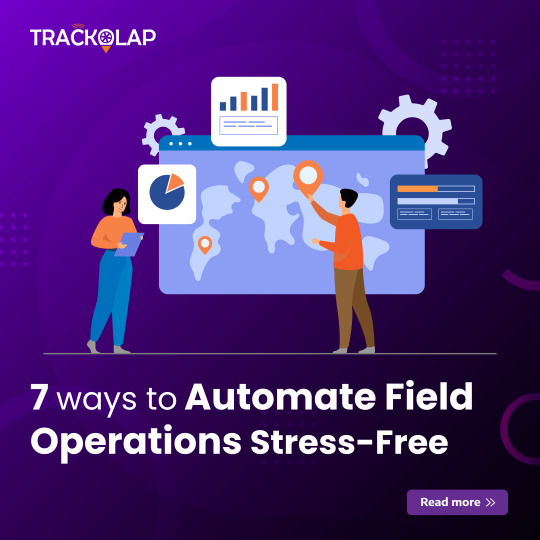
#field force automation#crm for small business#field sales software#field sales app#field sales management#field sales automation#field sales management software#field force automation system
0 notes
Text
In today’s business world, Customer Relationship Management (CRM) Software is crucial for every business. It is not just a normal tool it’s a necessity for businesses aiming to thrive in a competitive market.
Let us study why CRM software for business is so important.
#crm for small business#crm development#custom software solutions#crmsolutions#crm software solution#custom software development in nagpur
1 note
·
View note
Text
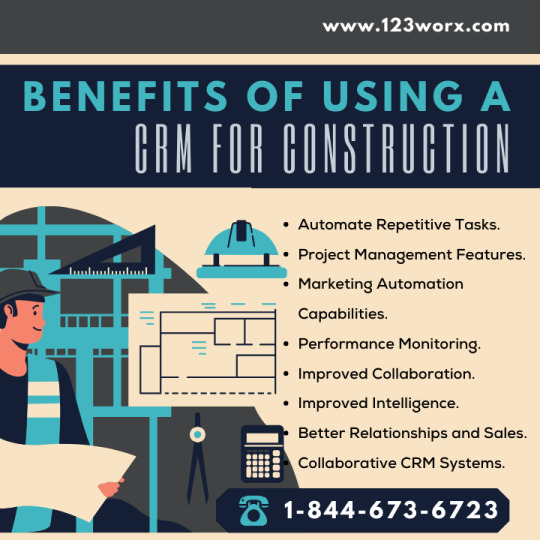
Say goodbye to scattered data and missed opportunities! With 123worx CRM Software solution designed especially for the construction industry, you can organize leads, track bids, manage your projects, and deliver exceptional services without delays. Request for demo and Get started today!
#construction management#construction software#crm software#crm solution#crm for small business#CRM for construction
0 notes
Text
Stay Organized and Connected: The Top 10 Personal CRM Apps of 2024

In today’s fast-paced digital age, staying organized and connected is more important than ever. Whether you’re managing personal relationships, professional contacts, or a combination of both, having the right tools at your fingertips can make all the difference. Personal CRM (Customer Relationship Management) apps have emerged as essential companions for individuals looking to streamline their communication, manage their networks effectively, and foster meaningful connections. As we step into 2024, let’s explore the top 10 personal CRM apps that are revolutionizing the way we stay organized and connected.
MyNetwork: MyNetwork takes personal CRM to the next level with its intuitive interface and powerful features. From managing contacts and setting reminders to tracking interactions and analyzing relationship dynamics, this app does it all. With seamless integration across devices, MyNetwork ensures that you’re always in control of your network, no matter where you are.
Contactly: Contactly is a versatile personal CRM app that caters to the needs of individuals from all walks of life. Whether you’re a busy professional juggling multiple clients or a social butterfly keeping up with friends and family, Contactly has you covered. Its customizable tagging system and smart filters make it easy to categorize and prioritize your contacts, while its robust search functionality ensures that you can find who you need when you need them.
RelationHub: RelationHub is the ultimate relationship management tool for the modern age. With its sleek design and user-friendly interface, RelationHub makes it effortless to nurture and strengthen your connections. From tracking communication history to scheduling follow-ups, RelationHub empowers you to take control of your relationships and make meaningful connections that last.
ConnectUP: ConnectUP is a dynamic personal CRM app designed to help you build and maintain valuable connections. Its intuitive dashboard provides a comprehensive overview of your network, allowing you to identify opportunities for engagement and growth. With features like automatic contact enrichment and activity tracking, ConnectUP takes the guesswork out of relationship management, allowing you to focus on what matters most.
NetworkNinja: NetworkNinja is a cutting-edge personal CRM app that puts the power of networking in the palm of your hand. Whether you’re attending events, meeting new people, or reconnecting with old friends, NetworkNinja helps you make the most of every interaction. Its advanced analytics and reporting tools provide valuable insights into your network, allowing you to identify trends, spot opportunities, and track your progress over time.
CircleSync: CircleSync is a seamless personal CRM solution that seamlessly integrates with your existing workflows and tools. Whether you’re a freelancer managing clients, a salesperson nurturing leads, or an entrepreneur building your brand, CircleSync has the features you need to succeed. Its robust automation capabilities and cross-platform compatibility ensure that you’re always one step ahead, no matter where your journey takes you.
LinkUp: LinkUp is a game-changing personal CRM app that redefines how you connect with others. With its intuitive interface and powerful features, LinkUp makes it easy to organize your contacts, streamline your communication, and cultivate meaningful relationships. Whether you’re following up on a lead, scheduling a meeting, or simply staying in touch, LinkUp has everything you need to stay organized and connected.
ContactKeeper: ContactKeeper is your all-in-one solution for managing your personal and professional contacts. With its intuitive interface and customizable workflows, ContactKeeper adapts to your unique needs and preferences, ensuring that you stay organized and efficient at all times. Whether you’re managing a small network or a large database of contacts, ContactKeeper helps you stay on top of your relationships and never miss an opportunity.
RelationshipRadar: RelationshipRadar is a cutting-edge personal CRM app that leverages the latest advancements in artificial intelligence and machine learning to help you build stronger connections. Its predictive analytics and recommendation engine provide valuable insights into your network, empowering you to make informed decisions and take meaningful action. With RelationshipRadar by your side, you’ll never be out of touch or out of reach.
ConnectSync: ConnectSync is the ultimate personal CRM app for individuals who value simplicity, efficiency, and effectiveness. With its minimalist design and intuitive features, ConnectSync makes it easy to stay organized and connected, no matter how busy life gets. Whether you’re managing your professional contacts, staying in touch with friends and family, or networking with new acquaintances, ConnectSync has everything you need to thrive in today’s interconnected world.
In conclusion, the top 10 personal CRM apps of 2024 offer a wide range of features and functionalities designed to help you stay organized and connected in a fast-paced, digital world. Whether you’re a busy professional, a social butterfly, or somewhere in between, there’s a personal CRM app out there to suit your needs. So why wait? Start exploring the possibilities today and take your relationships to new heights with the power of personal CRM.
And remember, if you’re looking to develop your own CRM solution tailored to your specific needs, consider partnering with a reputable CRM development company like CodingCafe. With their expertise and experience, they can help bring your vision to life and create a customized solution that meets your unique requirements.
#india#crm apps#crm development company#custom rm services#crm development#crm developers#codingcafe#usa#mohali#canada#crm#custom crm for small business#crm for small companies#crm for small business
0 notes
Text

CRM Mastery for Insurance Business Success
Optimized CRM: Tailored CRM solutions for seamless agency operations.
Strategic Moves: Individual agents master CRM technology for enhanced efficiency.
Integrated Approach: Comprehensive CRM solutions for overall business success.
#business crm small#crm for small business#crm for small companies#crm programs for small businesses#crm software for small businesses#crm tools for small business#small business crm solutions#best crm for small business#best crm tools for small business#good crm for small business#crm packages for small companies#crm for startup companies#top crm for small business#best crm for business#advertising#crm#leads#annuityleads#marketing#insurance#bestlifeinsuranceleads#acaleads#buylifeinsuranceleads#commercialinsuranceleadgeneration
0 notes
Text
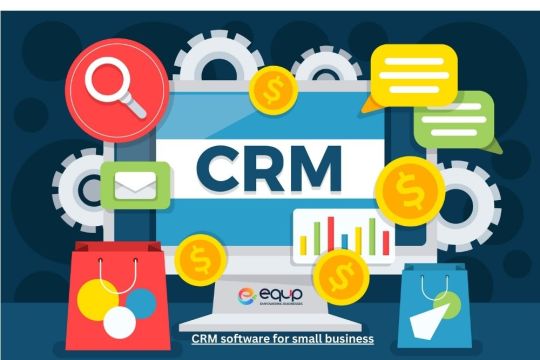
Discover the top CRM platforms specifically designed for small businesses. Streamline your sales, marketing, and customer service processes like never before.
#CRM Software#Sales Management Software#CRM Marketing Automation#CRM Management Software#All in one Management Software#Business Management CRM#CRM for Small Business#CRM Platforms for Small Businesses
0 notes
Text
Transform your projects with CRM Software App's Project Management Software. From planning to completion, empower your team with intuitive tools. Boost efficiency, meet milestones, and conquer deadlines. Elevate your project game now! #ProjectManagement #CRMSoftwareApp
#crm software app#project management software#small business crm#crm for small business#document management software
0 notes
Text

As a CRM consulting services firm, we believe CRM software will remain at the forefront of technological advancements, helping healthcare providers deliver high-quality care while optimizing their operations. By harnessing the capabilities of CRM software and embracing paperless solutions, the healthcare industry is poised to provide better experiences for both patients and healthcare professionals alike.
0 notes
Text
Best Sales CRM for Small Business: A Comprehensive Guide
In today's competitive market, small businesses need every advantage they can get to stay ahead. One of the most powerful tools in a business owner's arsenal is a Customer Relationship Management (CRM) system. But with so many options available, how do you choose the best sales CRM for your small business? This guide will help you navigate the CRM landscape and find the perfect fit for your needs.

What is a Sales CRM?
A Sales CRM is a software solution that helps businesses manage their interactions with current and potential customers. It organizes customer information, tracks sales activities, and automates repetitive tasks, allowing your sales team to focus on what they do best: selling.
For small businesses, a CRM system can be a game-changer. It can streamline your sales process, improve customer satisfaction, and ultimately drive revenue growth. But not all CRMs are created equal, especially when it comes to the needs of small businesses.
Read also: Best CRM for small businesses
Why Small Businesses Need a Sales CRM
Small businesses often operate with limited resources, which means efficiency is key. A Sales CRM helps by:
Centralizing Customer Data: All customer information is stored in one place, making it easy for your team to access and update records.
Improving Communication: A CRM ensures that everyone on your team is on the same page, reducing the chances of miscommunication or missed opportunities.
Automating Tasks: From sending follow-up emails to scheduling appointments, a CRM can automate many of the repetitive tasks that take up your team's time.
Tracking Performance: A CRM provides insights into your sales process, helping you identify what's working and where there's room for improvement.
Read also: sales force management
Features to Look for in a Sales CRM
When choosing a CRM for your small business, there are several key features to consider:
Ease of Use: The CRM should be intuitive and easy to use, even for team members who are not tech-savvy. A steep learning curve can hinder adoption and reduce the effectiveness of the tool.
Customization: Every business is different, so it's important to choose a CRM that can be customized to meet your specific needs. This might include custom fields, pipelines, or workflows.
Integration: Your CRM should integrate with the other tools you use, such as email marketing software, accounting systems, and customer support platforms. This ensures a seamless flow of information across your business.
Mobile Access: With more salespeople working remotely or on the go, mobile access is essential. A good CRM should have a mobile app that allows your team to manage their tasks and access customer information from anywhere.
Scalability: As your business grows, your CRM should be able to grow with you. Look for a solution that can handle an increasing number of users and customers without losing performance.
Affordable Pricing: Small businesses need a CRM that fits within their budget. Look for solutions that offer transparent pricing and flexible plans that allow you to start small and upgrade as needed.
Read Also: WhatsApp Automation
Top Sales CRMs for Small Businesses
Now that we know what to look for in a Sales CRM, let's explore some of the best options available for small businesses.
Salestown CRM
Overview: Salestown CRM is an excellent choice for small businesses, offering a user-friendly interface and a wide range of features tailored to streamline sales processes. Designed with small business needs in mind, Salestown CRM helps you manage leads, track sales activities, and gain valuable insights into your business performance. It integrates seamlessly with popular tools, making it an ideal option for businesses looking for a comprehensive CRM solution.
Key Features:
Free for unlimited users
Email tracking and notifications
Pipeline management
Integration with over 500 tools
Pros:
Easy to use
Excellent free plan with essential features
Scalable as your business grows
Cons:
Some advanced features require paid upgrades
2. HubSpot CRM
Overview: HubSpot CRM is a popular choice among small businesses due to its robust features and free plan. It offers a user-friendly interface and integrates seamlessly with other HubSpot tools, making it a great option for businesses that use HubSpot's marketing or service software.
Key Features:
Free for unlimited users
Email tracking and notifications
Pipeline management
Integration with over 500 tools
Pros:
Easy to use
Excellent free plan with essential features
Scalable as your business grows
Cons:
Some advanced features require paid upgrades
3. Zoho CRM
Overview: Zoho CRM is a versatile and affordable option that caters to businesses of all sizes. It's highly customizable, allowing you to tailor the CRM to your specific needs. Zoho also offers a wide range of integrations and additional tools, such as email marketing and project management.
Key Features:
Sales automation
Customizable dashboards and reports
AI-powered sales assistant
Social media integration
Pros:
Affordable pricing with a free plan for up to 3 users
Highly customizable
Extensive integration options
Cons:
The interface can be overwhelming for new users
Read also: CRM For Doctor
4. Pipedrive
Overview: Pipedrive is designed specifically for sales teams, with a focus on simplicity and usability. It's a visually appealing CRM that helps you manage your sales pipeline effectively. Pipedrive is ideal for small businesses that want a straightforward CRM without unnecessary complexity.
Key Features:
Visual sales pipeline
Email integration and tracking
Activity reminders and notifications
Customizable stages and fields
Pros:
Simple and intuitive interface
Strong focus on sales processes
Affordable pricing
Cons:
Limited features outside of Sales management
No free plan, only a 14-day trial
5. Salesforce Essentials
Overview: Salesforce Essentials is the small business version of Salesforce, one of the most well-known CRMs on the market. It offers a powerful set of tools for managing customer relationships, with the flexibility to customize the system to your needs.
Key Features:
Contact and account management
Opportunity tracking
Email integration
AI-powered analytics
Pros:
Feature-rich with powerful customization options
Scalable as your business grows
Access to the Salesforce AppExchange for additional tools
Cons:
Can be expensive for small businesses
Steeper learning curve compared to other CRMs
6. Insightly
Overview: Insightly combines CRM and project management in one platform, making it a great option for small businesses that need to manage both sales and projects. It's known for its user-friendly interface and robust reporting features.
Key Features:
Contact and lead management
Workflow automation
Project management tools
Email integration with tracking
Pros:
Combines CRM and project management
Easy to use
Good value for money
Cons:
Limited customization options
Some features require higher-tier plans
Read Also: Objective of CRM
How to Choose the Right CRM for Your Business
Choosing the right CRM for your small business depends on your specific needs and budget. Here are a few steps to help you make the decision:
Identify Your Needs: Start by listing the features that are most important to your business. Do you need a CRM that's heavy on sales automation, or do you need one that integrates well with your existing tools?
Set a Budget: Determine how much you're willing to spend on a CRM. Remember that some CRMs offer free plans, which can be a good starting point for small businesses.
Test the Options: Most CRMs offer free trials or demos. Take advantage of these to test the software and see if it's a good fit for your team.
Consider Future Growth: Choose a CRM that can grow with your business. You don't want to outgrow your CRM in a year and have to go through the hassle of switching to a new system.
Read Reviews and Get Recommendations: Look for reviews from other small businesses in your industry. Their experiences can provide valuable insights into how well a CRM might work for you.
Read also: CRM in service sector
Conclusion
The right Sales CRM can be a powerful tool for small businesses, helping you manage customer relationships, streamline your sales process, and ultimately drive growth. By considering your specific needs, budget, and future goals, you can find a CRM that fits your business perfectly. Whether you choose Salestown CRM, HubSpot, Zoho, Pipedrive, Salesforce Essentials, or Insightly, each of these CRMs offers a unique set of features designed to help small businesses succeed.
Read More:
What is Sales Automation
0 notes
Text
Future Trends in CRM Software
In today's fast-paced business environment, maintaining strong and lasting relationships with customers is essential for success. Customer Relationship Management (CRM) software has been a game-changer, empowering businesses to understand, connect with, and serve their customers better than ever before. However, the world of CRM is not static; it's evolving rapidly to meet the changing needs of businesses and customers alike. Let's delve into the future of CRM software and explore the exciting trends that are reshaping how companies manage their customer relationships.
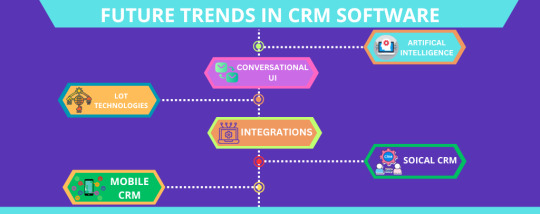
Artificial Intelligence and Machine Learning
Artificial Intelligence (AI) and Machine Learning (ML) are at the forefront of CRM innovation. These technologies are enhancing CRM systems with predictive analytics, automation, and intelligent insights. AI-driven chatbots provide immediate customer support, while ML algorithms analyze vast amounts of data to uncover valuable patterns and trends.
Omnichannel Customer Engagement
Customers today interact with businesses through multiple channels, including social media, email, chat, and more. CRM systems are adapting to provide a unified view of these interactions, allowing businesses to deliver consistent and seamless experiences across all touchpoints.
Enhanced Data Security and Privacy
With the increasing concern over data privacy, CRM software is focusing on robust security features and compliance with regulations like GDPR and CCPA. Future CRM systems will prioritize data protection, giving customers peace of mind while entrusting their information to businesses.
Integration with IoT
The Internet of Things (IoT) is connecting devices like never before, and CRM systems are integrating with IoT to provide a deeper understanding of customer behavior. For example, a smart refrigerator can communicate with a CRM system, allowing businesses to offer timely product recommendations or service alerts based on usage patterns.
Customer Experience Personalization
Personalization remains a key driver of customer satisfaction. Future CRM software will leverage AI to deliver hyper-personalized experiences. By analyzing customer data and behavior, CRM systems will enable businesses to tailor products, services, and marketing messages to individual preferences, increasing customer loyalty.
Mobile CRM
As mobile device usage continues to rise, mobile CRM apps are becoming increasingly important. Future CRM software will prioritize mobile functionality, allowing sales and support teams to access critical information and engage with customers while on the move.
Conclusion
The future of CRM software is exciting and full of promise. AI, omnichannel engagement, data security, IoT integration, personalization, mobile functionality, and sustainability are the driving forces that will shape the CRM landscape. By embracing these trends, businesses can stay ahead of the curve and foster deeper, more meaningful relationships with their customers, ultimately leading to greater success and growth.
#crm software#leadmanagement#crm for small business#crm#crm development#realkeeper#Future trends in CRM Software
0 notes